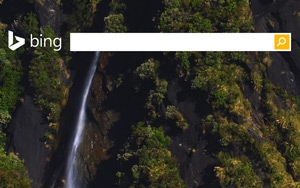 Microsoft has much to prove to its shareholders, government officials, brands and the search community. The company's announcements, including the 7,800-employee layoff and separately the technology
selloff to AOL, in the past two weeks will force a more intense focus on search services, putting pressure on the Bing team to build out services and supporting analytics for the query engine. It will
also make the primary technology stack a more secure pedestal for services like Cortana and Windows.
Microsoft has much to prove to its shareholders, government officials, brands and the search community. The company's announcements, including the 7,800-employee layoff and separately the technology
selloff to AOL, in the past two weeks will force a more intense focus on search services, putting pressure on the Bing team to build out services and supporting analytics for the query engine. It will
also make the primary technology stack a more secure pedestal for services like Cortana and Windows.
Bing now powers search and search advertising across the AOL portfolio of sites, in
addition to the search partnerships in place with Yahoo, Amazon, and Apple. It recently said it would use Altera semiconductor chips to speed search queries and data processing, and made its work with
neural networks known.
advertisement
advertisement
Aside from government officials like
Alabama Republican Sen. Jeff Sessions stepping in to slam Microsoft's
layoffs -- saying this shows dishonesty when lobbying for increased immigration into the United States -- the Bing team will need to innovate faster to compete with rival Google and
prevent Apple and Yahoo from jumping ship. Yahoo has been spotted testing Google search query results.
Focusing on search will help to further accelerate the progress the company has made
during the past six years, Microsoft CEO Satya Nadella wrote in an email to employees Wednesday. "Last year Bing grew to 20% query share in the U.S. while growing our search advertising revenue 28%
over the past 12 months," he wrote. "We view search technology as core to our efforts spanning Bing.com, Cortana, Office 365, Windows 10 and Azure services."
Microsoft last week announced a
decision tosharpen its focus in advertising platform technology and on search, while partnering with AOL and AppNexus for display.
Some of those changes require Bingto transfer its imagery operations to Uber. The company said it will continue to source mapping
data and imagery from partners. The shift should allow Microsoft to focus more on delivering better map products such as Bing Maps, Maps app for Windows, and Bing Maps for Enterprise application
program interfaces (APIs), which the company will need as search and Cortana become the "near me" go-to tool for mobile consumers.
"Similar to Nokia and HERE Maps, I think this is another case
where a company's business cannot support the significant expense of running a global mapping service," said Andrew Shotland, president of Local SEO Guide, who focuses on all things SEO. He points to a post by Horace
Dediu at Asymco.com, who estimates that maps cost about $2 billion per year to run. "Outsourcing imagery to Uber tells us Microsoft does not see mapping technology as core to its mission. At present
you don't need to run a mapping service to be a functional general-purpose search engine."
By licensing, however, Microsoft will find itself in the same difficult place that Yahoo did with
search should it decide down the road that maps are a critical piece.
"Perhaps the most intriguing thing to me is that maps are a core part of a mobile OS," Shotland said. "This could really
be signaling that Microsoft is exiting the mobile OS market and giving up on Windows Phone, which is basically what we just saw with the write-off of the Nokia acquisition and the layoffs that
accompanied it."